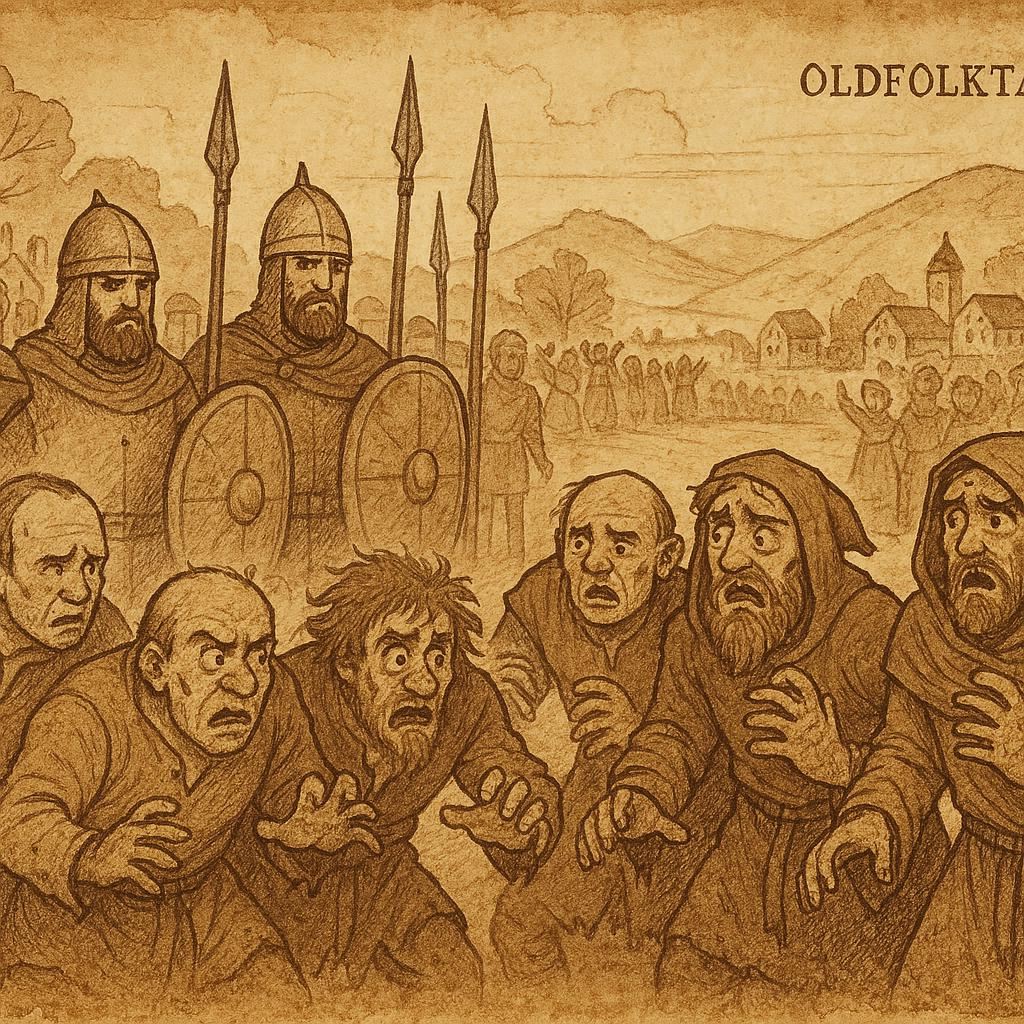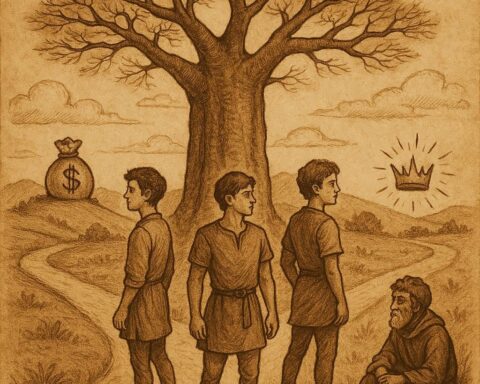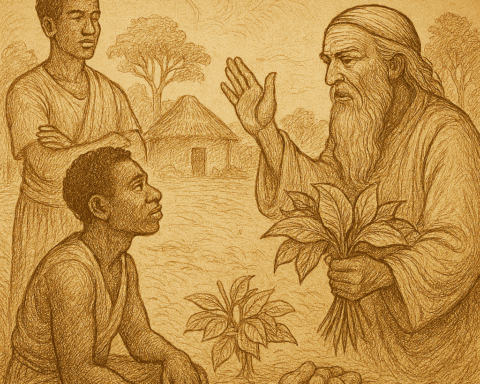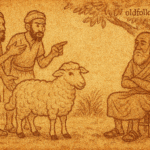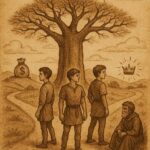Long ago, in the days when kingdoms stood strong and stories carried the weight of truth, there lived a man named Essido. He was no ordinary man, for he was known far and wide, not for kindness or strength of character, but for his wickedness. Essido’s name carried a shadow wherever it was spoken. Parents whispered warnings about him to their children, and villagers walked quickly when they thought he was near.
Essido was a man who had given his heart to evil. He had no love for honesty, no patience for hard work, and no respect for life. Instead, he gathered around himself a band of men who were just like him, thieves, killers, and tricksters. These companions, bound not by brotherhood but by greed and cruelty, followed Essido wherever he led them.
The Deeds of Essido and His Companions
By day they watched, and by night they struck. They prowled the villages and the forest paths, ambushing travelers who carried goods from one market to another. They stole yams, palm oil, kola nuts, and money. Worse still, they shed innocent blood. Those who resisted were cut down without mercy.
The land grew restless. Merchants feared to trade, and women trembled when they sent their children to fetch water. Even the farmers began to abandon their fields, for no one felt safe on the lonely paths where Essido and his companions roamed.
The people lived in constant dread, and their grief and anger grew like a storm gathering in the sky. They could no longer bear the wickedness that spread like a disease through their land.
The People Complain
At last, the villagers gathered their courage and went to the palace. The king, a wise and just ruler, sat upon his carved wooden stool, listening to their cries.
“Great king,” they said, bowing low, “we beg you to hear us. There is no peace in our land because of Essido and his men. They steal from us, they kill us, and they leave our roads and farms empty. Our children cannot grow in safety, and our lives are full of fear. We beg you, put an end to their wickedness.”
The king’s face grew stern. He had heard whispers of Essido’s cruelty, but now the voices of his people rang clear in his ears. He knew that justice must be served, for no kingdom can thrive when evil men roam freely.
The King’s Justice
The king called his soldiers, men strong and fearless, trained to protect the land. Their spears gleamed in the sunlight, and their shields bore the marks of battle.
“Go,” commanded the king. “Hunt down Essido and his evil companions. Do not rest until you have brought justice for my people.”
The soldiers marched out, their drums echoing across the villages as a sign of the king’s judgment. Fear spread among Essido and his men when they heard the sound. Still, they thought themselves clever enough to escape. They hid in the forest, in caves and thickets, waiting for the soldiers to pass. But the king’s warriors were patient and watchful.
For many days the chase went on, until at last Essido and his companions were surrounded. Spears blocked their path, and shields closed in like the walls of a prison. The thieves, once so proud and fearless, trembled before the king’s soldiers.
The Fate of Essido
The soldiers bound them and led them back to the king. The people gathered in the palace courtyard, filling the air with shouts of anger and cries for justice.
The king rose and declared, “You have chosen evil. You have stolen, killed, and brought sorrow to the land. Such men cannot live among the righteous.”
And so Essido and all his companions were put to death. Their bodies were thrown into the bush, far from the village. There, wild beasts came prowling, and the remains of the wicked were devoured until nothing was left but silence.
The people, seeing this, felt the weight of fear and relief at once. Their land was cleansed of evil, and peace slowly returned. But the story of Essido lived on, told again and again as a warning.
Moral of the Story
The fate of Essido and his evil companions reminds us that no wicked man escapes justice forever. Evil may walk proudly for a time, but its steps always lead toward destruction. Bad men never come to a good end.
Knowledge Check
1. Who was Essido in this Nigerian folktale?
Essido was a wicked man who led a band of thieves and killers.
2. What crimes did Essido and his companions commit?
They robbed villagers, killed travelers, and spread fear across the land.
3. How did the people respond to Essido’s actions?
The villagers complained to the king, asking for justice and protection.
4. What did the king do to stop Essido and his men?
He sent his soldiers to capture them and restore peace.
5. What was the punishment given to Essido and his companions?
They were killed, and their bodies were thrown into the bush to be eaten by wild beasts.
6. What is the moral lesson of this Nigerian folktale?
The story teaches that evil deeds always lead to destruction, and wicked men never prosper in the end.
Source: Nigerian folktale
